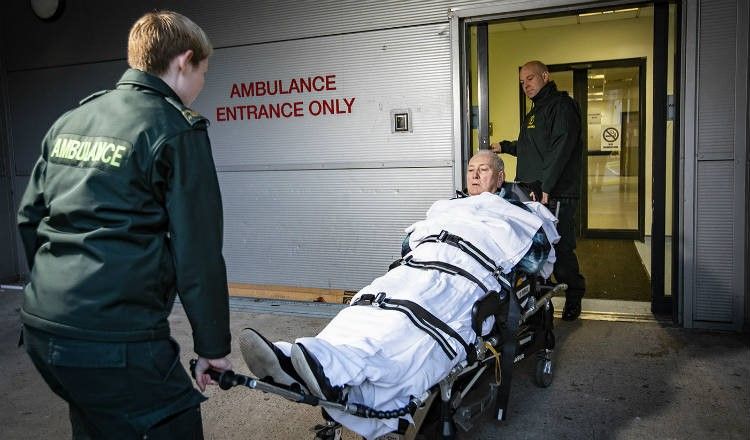Many people at the end of life are being rushed back and forth to A&E. With better care at home, it doesn’t have to be this way.
What’s the issue?
On average people in Britain in the last year of life have more than three emergency admissions, spending almost three weeks in hospital as a result.
Some of these emergency admissions are necessary, but many could be avoided if the right care was available for people in their homes or in the community.
Why this matters
Reducing emergency admissions to hospital is better for patients and vital to relieving pressure on the NHS.
Every time someone approaching the end of their life is rushed into hospital, it can result in upset and disruption for them and their families which impacts on their quality of life.
They and their loved ones also often have to endure the stress and uncertainty of not knowing when or even if they will be able to return home.
What’s the solution?
Independent research from the Nuffield Trust found that people who were supported by the Marie Curie Nursing Service are three times less likely to require an emergency admission and twice as likely to die at home.
Where commissioned, our nurses can provide care in the community at any time, day or night, meaning that people are still able to access expert care outside of normal working hours and outside of hospital.
Our rapid response service also means that patients and their families can access information and advice over the phone, and urgent nursing care in their homes, any day of the week. And importantly, help keep people out of hospital.
But we are only part of the solution - we need to make this kind of community care a priority for the NHS.
In Wales, we are currently delivering a transformation programme funded by Macmillian. It aims to explore the experiences of people interactive with emergency services in the twelve months of life.
Currently, 1 in 14 of every emergency department attendance in Wales is in relation to someone who is in the last year of life – with too many cases of unnecessary admissions.
The programme has four phases:
- Phase 1: Developing a clear evidence base of the current experiences and data shaping the experiences of people who interact with emergency services in the last 12 months of life.
- Phase 2: Exploring the current and forthcoming health and care service offering in Wales aimed at reducing emergency attendances.
- Phase 3: Reviewing and understand models of care to build an evidence base of practice in other parts of the UK and Europe.
- Phase 4: Taking learnings from the first three phases of work, the team will develop optimised models of care for people in the last 12 months of life and develop buy-in with policymakers and health and social care partners to develop the opportunity to test different approaches.
How you can help
If you or someone close to you has experienced end of life care in Wales and needed to use emergency services, we want to hear from you.
Please fill in our survey if you:
- live with a terminal illness
- care for someone at the end of life
- have been bereaved in the last two years.
We’ll share our findings with people in Wales who are responsible for making decisions about palliative and end of life care.
Prefer to talk or need a paper copy? Call us on 01495 740846 and we’ll be happy to help.
